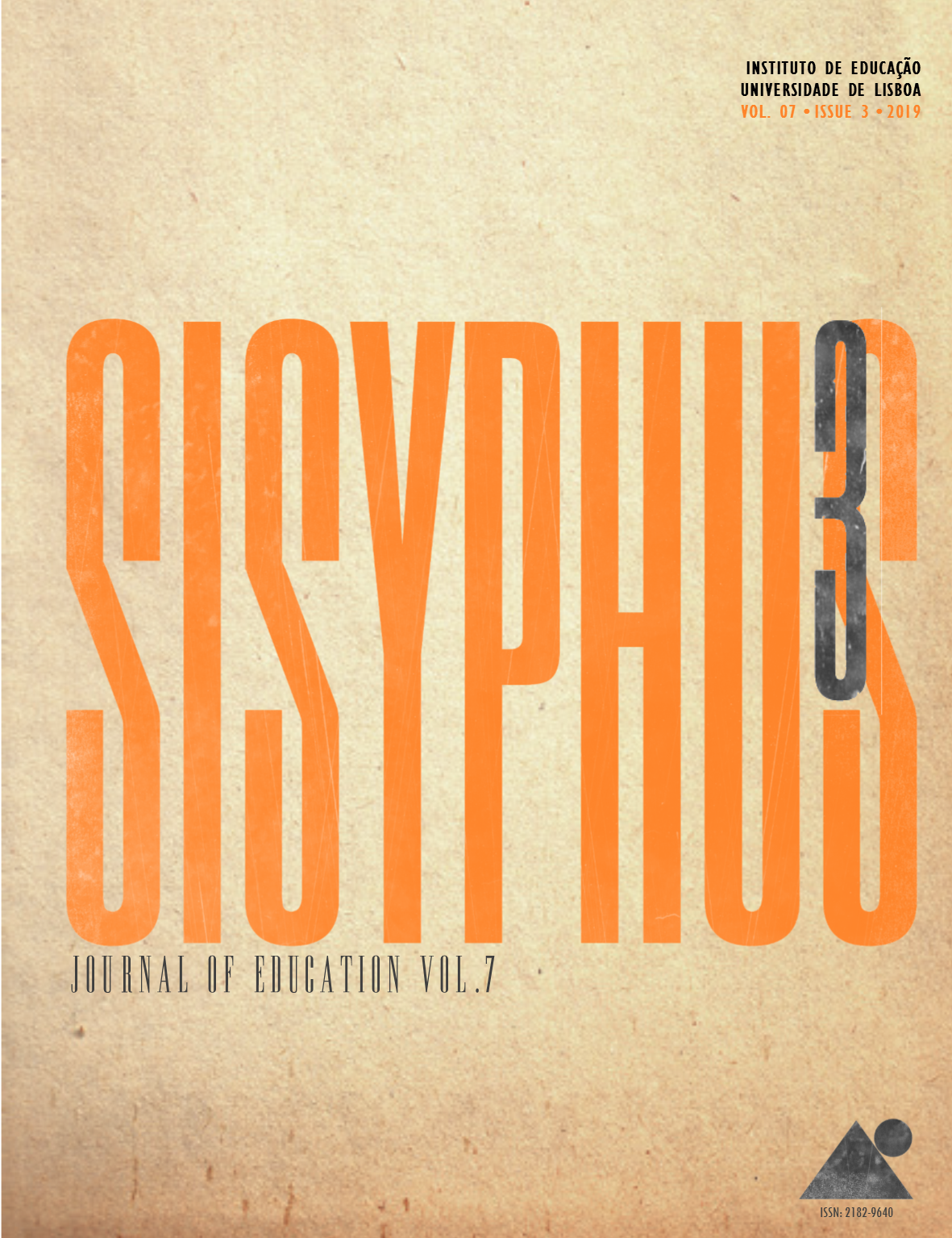Opinions and Perceptions of Teachers on Bullying
Some Results of a Qualitative Study
DOI:
https://doi.org/10.25749/sis.18223Keywords:
bullying, perception, teachers, schoolAbstract
Current literature considers it relevant to give attention to teachers' opinions and perceptions about bullying, since teachers interact daily with students and are often responsible for identifying and responding to bullying. This time, the primary objective of the study was to know the teachers' perception of the occurrence of bullying.
In order to carry out the present investigation, the semi-structured interview was used as a data collection technique. The first part was used to collect personal information about the ten teachers who participated in the study, and a second part was composed of ten open-ended questions.
The main results point to the need for better teacher training on bullying, as well as the need for greater dissemination of the theme in order to alert schools to the consequences of these practices, particularly the development of prevention and intervention.
Downloads
References
Avilés, J. (2003). Bullying. Intimidación y maltrato entre el alumnado. Bilbao: STEE-EILAS.
Bardin, L. (2004). Análise de Conteúdo. (3ª Edição). Lisboa: Edições 70.
Bogdan, R., & Biklen, S. (1994). Investigação Qualitativa em Educação. Porto: Porto Editora.
Cunha, P., & Monteiro, A. P. (2018). Gestão de Conflitos na Escola. Lisboa: Pactor.
Dahlheimer, J. M. (2004). Teachers’ perceptions of bullying behaviour. (Thesis of master of Science Degree in Guidance and Counselling). University of Wisconsin-Stout, United States of America. Retirado de: http://www2.uwstout.edu/lib/thesis/2004/2004dahlheimerj.pdf
Ferreira, V., Rowe, J., & Oliveira, L. (2010). Percepção do professor sobre o fenómeno bullying no ambiente escolar. Unoesc & Ciência – ACHS, 1(1), 57-64.
Garaigordobil, M., & Martínez-Valderrey, V. (2014). Effect of Cyberprogram 2.0 on reducing victimization and improving social competence in adolescence. Revista de Psicodidáctica/Journal of Psychodidactics, 19(2), 289-305. doi: 10.1387/RevPsicodidact.10239
Kochenderfer-Ladd, B., & Pelletier, M. E. (2008). Teachers’ views and beliefs about bullying: Influences on classroom management strategies and students’ coping with peer victimization. Journal of School Psychology, 46, 431-453. doi: 10.1016/j.jsp.2007.07.005
Marconi, M. A., & Lakatos, E. M. (1999). Técnicas de pesquisa. (3ª Edição) São Paulo: Atlas.
Marshall, M. L., Varjas, K., Meyers, J., Graybill, E. C., & Skoczylas, R. B. (2009). Teacher responses to bullying: Self-reports from the front line. Journal of School Violence, 8(2), 136-158. doi: 10.1080 / 15388220802074124
Neto, A. A. L. (2005). Bullying – comportamento agressivo entre estudantes. Jornal de Pediatria, 81(5), 164-172. doi: 10.1590/S0021-75572005000700006
Olweus, D. (1993). Bullying at school – What we know and what we can do. Oxford: Blackwell.
Pearce, J. B., & Thompson, A. E. (1998). Practical approaches to reduce the impact of bullying. Archives of Disease in Childhood, 79(6), 528-531.
Pereira, B. O. (2008). Para uma escola sem violência: estudo e prevenção das práticas agressivas entre crianças. (2ª Edição). Coimbra: Fundação Calouste Gulbenkian.
Pessoa, T., & Amado, J. (2014). Cyberbulling – questões e desafios atuais. EDMETIC, Revista de Educación Mediática y TIC, 3(2), 29-51.
Rigby, K. (2002). New perspectives on bullying. London: Jessica Kingsley Publishers.
Rosen, L. H., Scott, S. R., & Deornellas, K. (2017). Teachers’ perceptions of bullying: A focus group approach. Journal of school violence, 16(1), 119-139. doi: 10.1080/15388220.2015.1124340
Royer, E. (2003). Condutas agressivas na escola: pesquisas, práticas exemplares e formação de professores. Desafios e alternativas: violência nas escolas. In Anais do Seminário de violências nas escolas: desafios e alternativas (pp. 57-78). Brasília: Unesco, UNDP.
Smith, P. K., & Brain, P. (2000). Bullying in schools: Lessons from two decades of research. Aggressive Behavior: Official Journal of the International Society for Research on Aggression, 26(1), 1-9. doi: 10.1002/(SICI)1098-2337(2000)26:1%3C1::AID-AB1%3E3.0.CO;2-7
Smith, P. K., & Sharp, S. (1994). The problem of school bullying. In P. K. Smith & S. Sharp (Eds.), School bullying: insights and perspectives (pp. 1-19). Nova York: Routledge.
Strohmeir, D., & Noam, G. (2012). Bullying in schools: What is the problem, and how can educators solve it? New Directions for Youth Development, 10, 45-50. doi: 10.1002/yd.20003
Troop-Gordon, W. (2015). The role of the classroom teacher in the lives of children victimized by peers. Child Development, 9, 55-60. doi: 10.1111/cdep.12106
Troop-Gordon, W., & Ladd, G. (2015). Teachers' victimization-related beliefs and strategies: associations with students' aggressive behavior and peer victimization. Journal of Abnormal Child Psychology, 43(1), 45-60. doi: 10.1007/s10802-013-9840-y
Downloads
Published
Issue
Section
License
Copyright (c) belongs to Sisyphus - Journal of Education. However, we encourage issued articles to be published elsewhere, provided that Sisyphus authorization is asked for and that authors integrate our original source citation and a link to our website.
Author Self-Archiving Policy
Author(s) are permitted to self-archive the final published version in institutional or thematic repositories, and in their personal or institutional websites.
DORA Signer
The Instituto de Educação da Universidade de Lisboa, Sisyphus' Publisher, is a San Francisco Declaration on Research Assessment signer.






